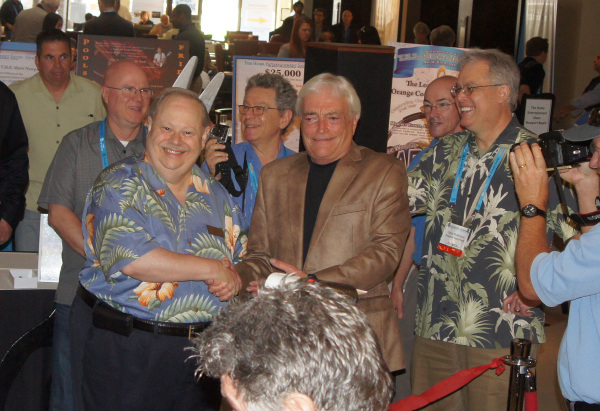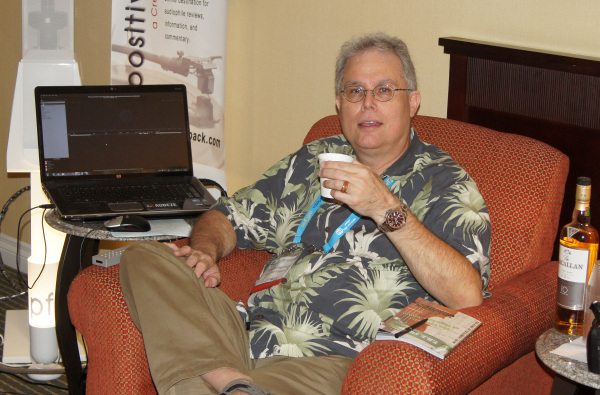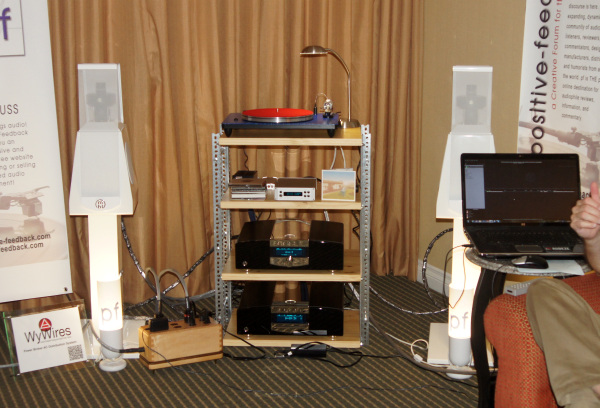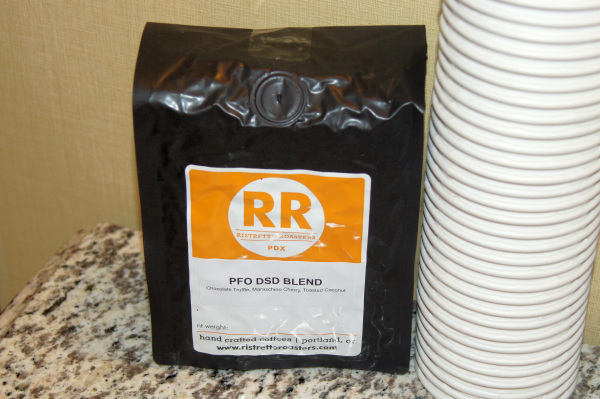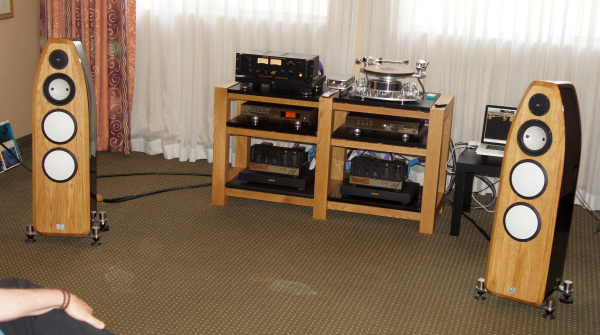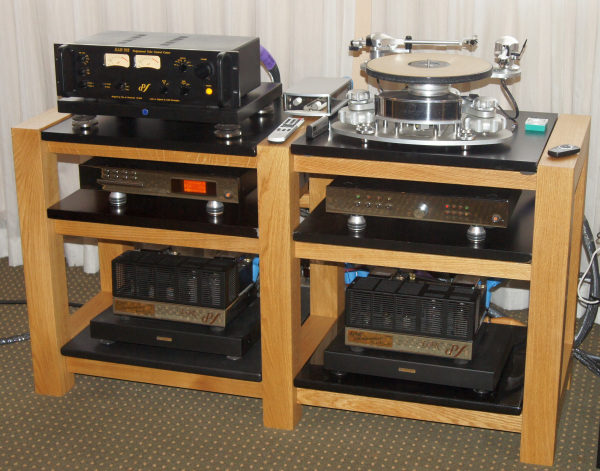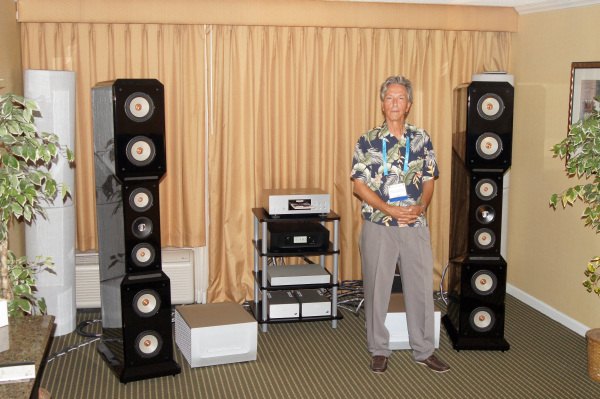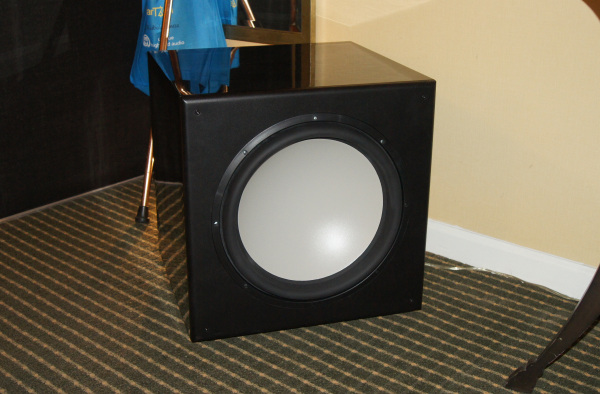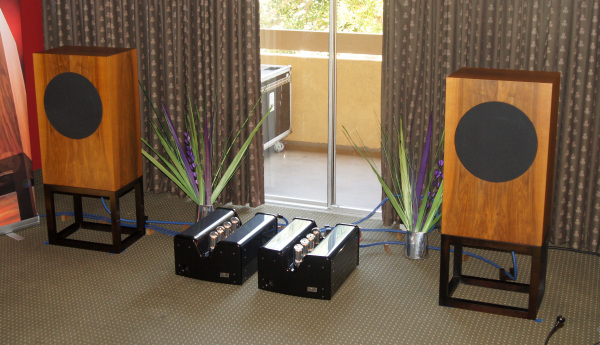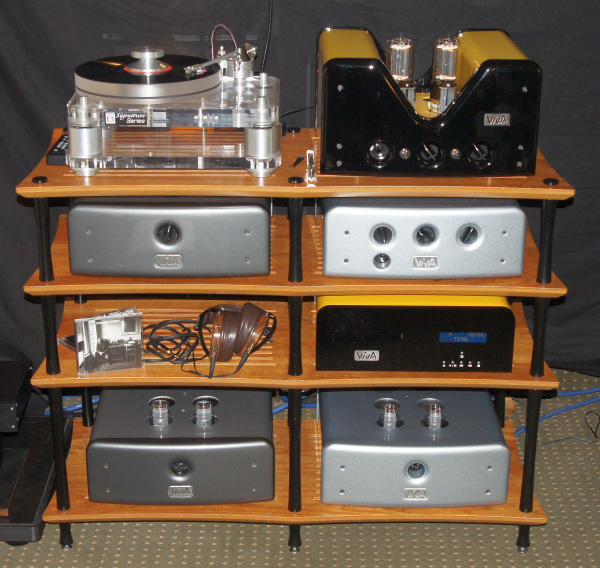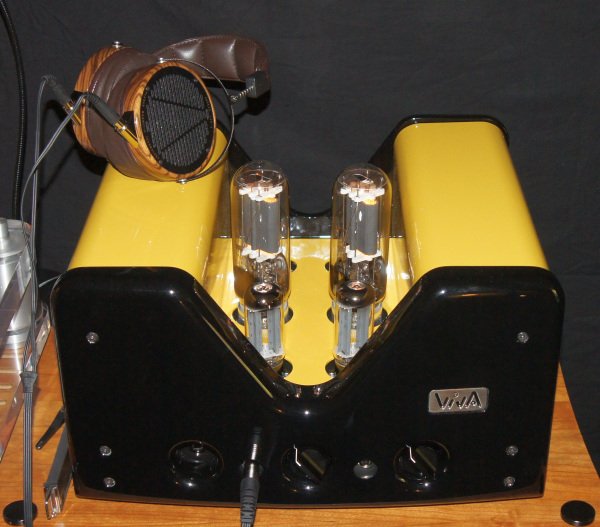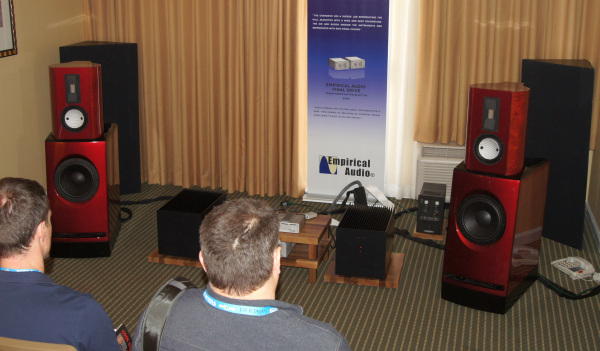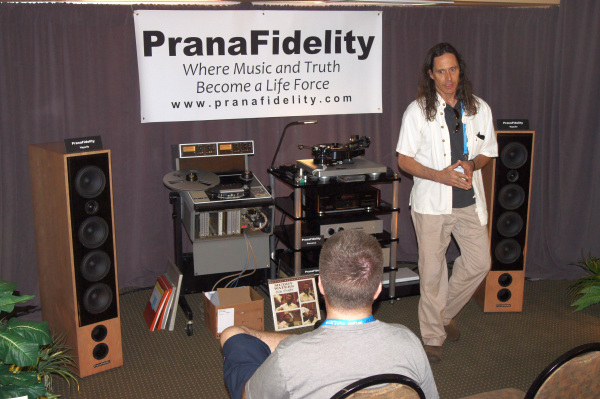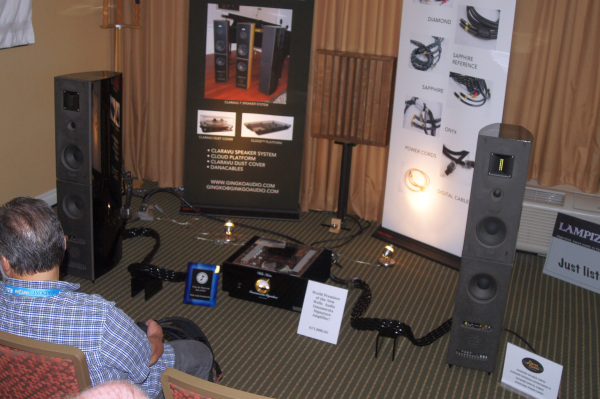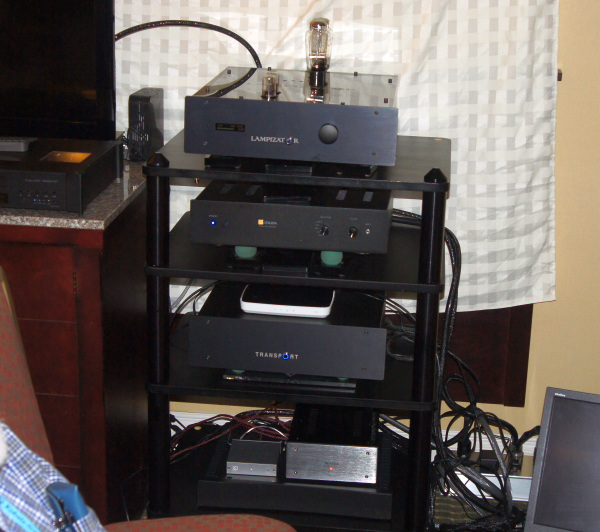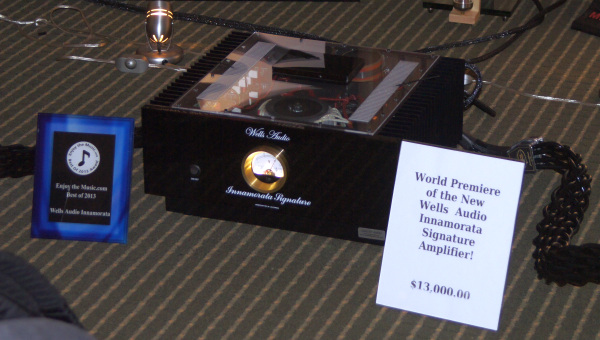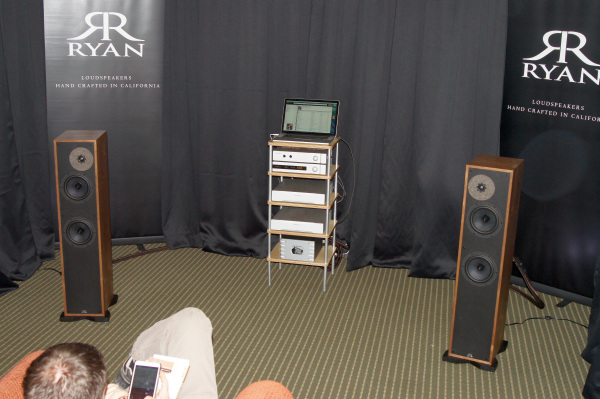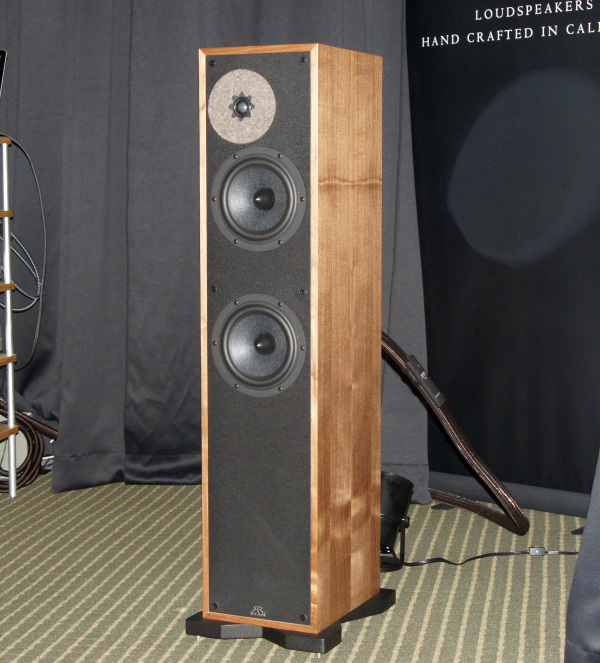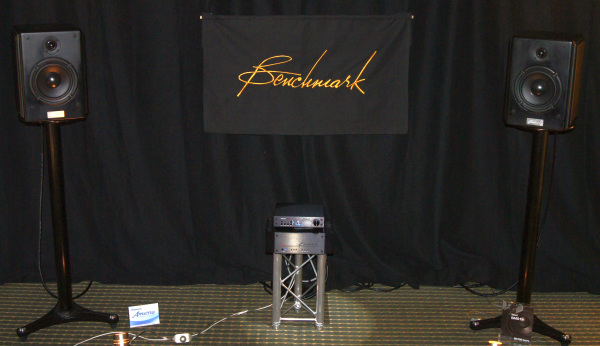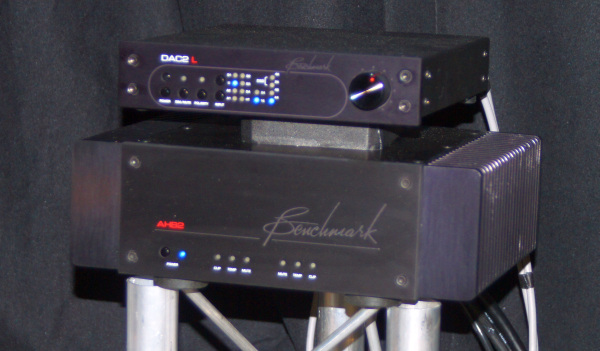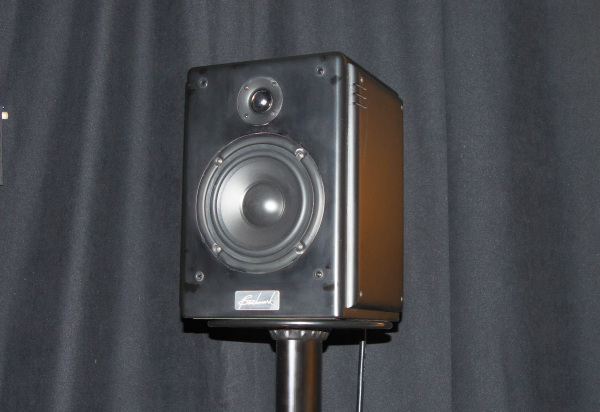You are reading the older HTML site
Positive Feedback ISSUE 73
T.H.E. Show Newport 2014
I realize that for many years I've opened my various show reports with a little rant of sorts, carrying on about things that bother me about the high end audio industry, or about trade shows like CES. I was thinking about what to open with this time, when a brief conservation with an industry friend struck me as being not just the topic I was looking for, but one that actually had bugged me for many years. And this time it has more to do with my fellow audio scribes and how they cover shows. I have been very clear in almost every show report that I've written, that I don't really look for or expect outstanding sound quality at shows. We all know the interaction between the room and the speakers is as important, if not more important, than any other part of the final sound of the system. Acoustically speaking, most hotel rooms just aren't that good. So at shows, when I hear exceptionally good sound, that tells me more about the choice of products an exhibitor decided to show, and their ability to match a system to a room of questionable sonic properties. Good sound comes from good decisions, good ears and a good understanding of set up. I'm always surprised, and somewhat disheartened, by companies that chose to cram their biggest (or most expensive) system in a room that is clearly too small. At best they produce mediocre sound, and though more experienced listeners will understand that, too many people walk from those rooms being overall disappointed. Exhibitors that have been to THE Show Newport in the past, know the rooms, and should try to bring what could be their best sounding systems for the room, rather than just trying to impress via shear size and expense. However, for all the years I've been reading (not just writing) show reports, I've always wondered about articles that include awards for "Best Sound" or other proclamation of definitive excellence. A few things have to be asked. Did the writer actually hear every room? It's hard to award a "best of show" if you missed any rooms. What if that one unknown company in the out of the way room that was playing music you hated when you skipped by, just happened to be extraordinarily good when you played your favorite demo tracks? An absolute statement like "best" has to be, well, absolute. Did they hear them under equal conditions? Was one room empty while you had a private demo, while some other rooms were packed with visitors? Was one room early on Day 1 while another late afternoon on Day 3? There are lots of factors that come in to play with regards to conditions. Did they hear the same tracks, records or files? Did one room play your tracks while some other room couldn't? Was a room set up for LP while another wasn't? One had DSD capability another didn't? Did they use a limited playlist of just a few special demo tracks? All the other things that make comparisons at shows difficult at best? Did one offer fine wine or other beverage, while another basically ignored you? Did one treat you like a welcome guest while another carried on about hating audio reviewers? Was the room filled with people who felt that since their music wasn't playing that it meant they could talk loudly so you couldn't hear what they were playing for you? There are a lot of things other than the sound that can influence one's ideas of "best" at a show. So again, I do really enjoy and perk up at a room that sounds noticeably better than others. I also am fairly understanding of rooms that clearly have a lot of potential, but are maybe limited by the actual room or speaker/room interaction. It is pretty much only when I hear poor sound quality while having to hear the exhibitor tell me how great it sounds that I stop being at all understanding. If that's what they tell me is good sound, then I guess I can disagree and say it wasn't. That's probably why I tend to have so many clarifications and careful wording in my reports. I might say a room sounded great to me, or was among the best that I heard. I might, as I will this time around, single out a handful of rooms for sounding exceptionally good. But still I hope readers understand that it is not anything more than my opinion of the overall sound I heard at the time I was there. I didn't hear all the rooms, didn't hear them under similar conditions, didn't hear my own music choices in very many of them. But still, for me, it's a more interesting way to cover and report on a show than just posting photos with no comment. I do at least try to get the product names and prices right. Other than that, there are some rooms missing from the report. Some because I didn't get a good photo, some because they didn't interest me, some because they ignored me, some because there were simply too many rooms and I needed to get the article written, edited and then get all the photos cropped, edited and corrected. Show reports are time consuming, and I'm old school with how I do them. On to the show! First, a tip of the hat to the folks who made it happen, Bob Levi (left) and Richard Beers right) shaking hands. That's Positive Feedback's own David Robinson to Richard Beers' right.
As usual, Positive Feedback hosted a great Hospitality Suite, with great refreshments and great people to sit and converse with. Here's David Robinson with server notebook he used to demonstrate great DSD recordings (including the only quad-dsd files ever heard).
In the PF Hospitality Suite, the DSD files were played over a beautiful MBL Corona system. There was a VPI Traveler in case someone wanted to spin vinyl too.
Okay, I lied, there was a real "best sound of the show" and I had to hear it to start every day. In the PF Suite we had Din Johnson founder of Portland's Ristretto Roasters brewing a never-ending supply of some of the finest coffee available. The sound of the coffee being ground and brewed and poured into my cup was true music to my ears. He even did a special PF DSD Blend for us! If you are a connoisseur of fine coffee, you have to check Ristretto Roasters out.
Part 1 A Handful of Rooms that Simply Really Impressed the Heck Out of Me The room in this section, regardless of price, simply did something special for me. They showed that good, even great sound could happen in a hotel room. As I mentioned in my opening, part of is good equipment, but maybe a larger part is great setup. In no particular order. E.A.R. USA Hearing great sound at a show from E.A.R. USA is nothing new. For almost as long as I've been going to shows, E.A.R. electronics and Marten speakers, as set up by US importer Dan Meinwald, have always been among the most consistently great rooms I've heard. This time around, everything just worked together even better than usual. I kept stopping back to hear one more track, and the room was packed every time. Plus, Dan brings the most complete and diverse musical choices of any exhibitor. Truly wonderful sound in every way.
E.A.R. Acute 4/DACute 4 CD/SACD player ($13,000); E.A.R. Diskmaster Turntable ($28,000); Helius Omega Silver Ruby 10-inch tonearm ($5225 each); Dynavector XV-1s stereo cartridge ($5450); Dynavector XV-1s mono cartridge ($5950) E.A.R. 509 mono amps ($15,700/pair); EAR 912 preamp ($13,000) Marten Coltrane Tenor speakers ($85,000) Jorma Prine Interconnects ($9900/meter pair); Jorma Origo speaker cables ($7000/meter pair); Waveform Fidelity (Kaplan) GS Mk2 power cords ($1495 each)
Von Schweikert I don't often have a lot to say about speakers that sell for over $100,000. When I saw the size of the new VR-100XS Universe speaker system ($140,000) and the fairly small room they were in, I wasn't expecting a good fit, but I've known Albert for many years (since the mid 1980s, when he was first developing the Vortex Screen), and know that he knows his stuff. The four-piece system (two full range towers and two "pressure equalizer" sub woofers) disappeared and just plain sounded beautiful. The system did sound much better on days two and three than on day one.
The subs aren't just regular subs, they run not to play the bottom octave, but if I understood Albert's description, they are servo driven and used to cancel out room nodes and smooth out bass response regardless of the room. From what I heard starting on Day 2, they do there job remarkably well.
Profundo - Blackbird Audio - Trenner and Freidel - Viva - Basis Since the first Newport Show, rooms hosted by Profundo (the importer) and Blackbird Audio (a San Diego area dealer) have ranked among the better sounding exhibits each year. This year their main room simply sang with truth and beauty. Plus, I suppose you either love or hate the way they look, but I think the Viva electronics are some of the best looking products on the market, too. Full range and totally effortless reproduction of whatever we played.
Viva Audio Numerico CD transport/DAC ($10,000); Basis 2200 Signature Series turntable w/ Basis reflex clamp ($6850); Basis Vector 4 tonearm with micrometer ($5500); Basis Synchrowave external power supply ($4600); Basis Calibrator base and cable management system ($2395); Transfiguration Proteus low output MC cartridge($6000); Viva Audio Fono preamp ($16,500) Viva Audio Linea Analog Linestage ($18,500); Viva Audio Aurora Mono amps ($45,000); Trenner & Friedl RA speakers ($25,000)
Are you a headphone aficionado? Viva's new Egoista Headphone amp puts out 15 watts with two 845 output tubes ($9500). Sounded spectacular with Audeze LCD3 headphones.
Empirical Audio Vapor Audio Last year I loved the room these companies shared, showcasing the Vapor Nimbus speakers. This year they moved up to Vapor's top of the line Joule White speakers ($12,995) driven by Clayton Audio M300 monoblocks ($16,500). An Antipodes DV Music Server ($3990) played through an Empirical Audio Overdrive DAC ($6399) and a Short Block USB Filter ($199). Their Final Drive Transformer Buffer ($2999) meant no preamp or linestage was needed. Cables from Antipodes, VH Audio Plasmatron power line conditioner ($4000) rounded thing out. Except for the bass on one of the 24/48 tracks I brought (Royals by Lorde of all things) exciting a room node, the sound was seemingly unlimited in dynamics, clarity and transparency. Another room I went back to several times.
PranaFidelity In Las Vegas earlier this year I was really impressed with Steve Norber's PranaFidelity system, that was using a prototype version of the Vayu/fs speaker. This show, the system was playing with the production version. The system with the relatively simple looking Vayu/fs ($6950) was even more beautiful sounding than in Vegas. Real high-end sound without the astronomical price. Of course, PranaFidelity makes more than just speakers, and this system, included their Purna /ma amplifier ($8950), Purna /ca preamp ($4500 to $9950 depending on options). Sources included a PranaFidelity modified Pioneer CD player, Wyred4Sound DAC-2, Ampex ATR-102 tape deck (modified by Bernie Grundman Mastering) and a Brinkman Audio Bardo turntable.
Gingko Audio DanaCable Wells Audio Lampizator Ever since I read John Zurek's review of the Gingko Audio ClaraVu 7 speakers ($8995) in PF issue 67 I've been looking forward to hearing them. At this show, they were in a system that paired them up with the new Signature edition of the Wells Audio Innamorata amplifier ($13,000) and a combination of Lampizator digital gear, the Big 7 DAC ($11,500) and Transport music streamer ($2650). Everything was hooked up with a collection of DanaCables. The sound in this room had that wonderful and rare combination that could music lovers swoon and audiophiles stop obsessing. When the music started nothing else mattered.
Ryan Speakers Todd and Trevor Ryan have been designing nice affordable speakers for many years, though it has been a long time since they did so under their own name. Way back in the mid-1980s I had the opportunity to try out a prototype of their first little commercial speaker and it was quite nice. They are back now with their new company Ryan Speakers, and I think they are one of the most exciting new products I've heard in a long time. Their display, using their relatively simply looking and very reasonably priced R620 speakers ($3000) was overall, at least in my opinion, one of the very best sounding systems I heard at the show regardless of price. Using a Macbook Pro (running JRiver Media Center 19) and a full line of Aurelic electronics, there was seemingly unlimited dynamics, clean quick powerful bass that didn't seem like it could be coming from a pair of small mid-bass drivers and a clarity and transparency that just doesn't happen in speakers in this price range. We listened to audiophile jazz, we cranked Led Zeppelin, played some obscure soundtracks, didn't matter, just astonishingly good sound.
Benchmark Media Systems I've enjoyed the Benchmark Media Systems rooms over the past few shows when they've shared their room with Studio Electric using their excellent sounding speakers. This time around, Benchmark were showing not just their excellent DAC2 L ($1695), but also their new AHB2 100 wpc amp ($2995) and SMS1 speakers ($2450). With the exception of real deep bass (though certainly more than you would expect from speakers this size) this system the sound was smooth, expressive, dynamic and rich. The whole system was under $10,000 and just killed.
The amplifier was much smaller than you would expect for a 100 watt solid sate bipolar Class AB amp. Benchmark claims SNR close to 130dB and vanishing low distortion.
The SMS1 speaker was designed in conjunction with Studio Electric, but uses Benchmark deigned crossover and driver modifications. I've often said I'm no fan of small stand mounted speakers, but this join the very short list of those that I want to hear again.
That's it for part one. I need to again point out that these are just some rooms that struck me as having exceptionally good overall sound. They tripped my trigger. Doesn't mean other rooms didn't sound great too, or that you might not have liked what you heard here. If we all had the same taste there wouldn't be so many companies displaying at these shows. Part two coming real soon
|


